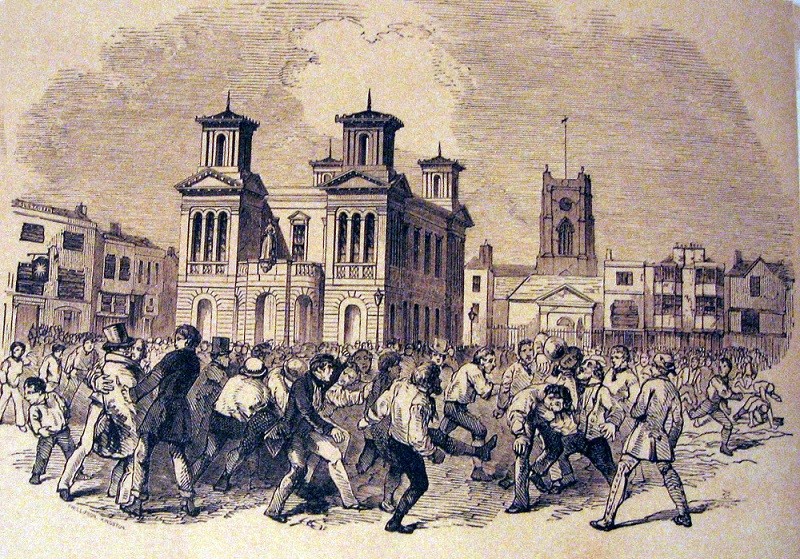Note that your final mark will not be saved in the system.
3.1.3.1 Emergence of globalisation of sport (pre-industrial) GapFill
You must fill all the gaps before clicking ‘Check Answers!’

The transition of Britain into an industrial society took place over a number of years. This makes it difficult to pinpoint pre-industrial Britain around an exact year; however, for the purpose of this specification, pre-industrial Britain can be classed as pre-1780. Life then was very different from life today. With a lack of infrastructure, travel was severely limited and a much greater percentage of people lived in rural areas, where they faced tough conditions. The sport that was played during this time was referred to as ‘ ’, and its characteristics were shaped by many social factors of that time.
Social factors that shaped the characteristics of, and participation in, sporting recreation in pre-industrial Britain:
- Two-tiered class system – There was a clear distinction in the sporting activities and roles between the two distinct classes of that time: the upper class (known as the ) and the lower class (commonly labelled ). The upper class were wealthy and could spend money on the resources needed to participate in sporting recreation such as guns for hunting and racquets for . The lower class had much less money, meaning that they could afford to participate only in sporting recreation designed from natural resources such as using an inflated pig skin for and baiting animals (blood sport where animals are pitted against each other). These activities had few rules, and were violent and simple in nature.
- Harsh lifestyle – For the lower class, working hours were long, which meant there was little time to participate in sporting recreation. This led to it mainly being played on holidays or holy days, making it . It also meant that when it was played, there were great masses of participants involved in unruly play. was a key feature for entertainment purposes. The upper class were not subject to harsh lifestyles as their landed status meant that they did not have to labour for a living. This allowed them an abundance of free time to participate in sporting recreation for a longer duration, often spending the whole day or multiple days on hunting ventures.
- Transport – The lack of modernised transport and the ill state of roads resulted in the restriction of sport to a area. This meant that was limited for standardisation of rules across the different parts of Britain.
- Limited advances in in pre-industrial times also restricted the spread of sport, such as that which was provided by the development of the steam engine and the railway network during the Industrial Revolution.
- Illiteracy – There was a lack of . A lack of educational policy also meant that it was not uncommon that people, particularly of a lower class, were unable to read and write. This meant that the rules of sport needed to be simple and understandable to allow people to participate, whereas more complex sports required experienced players to educate others. A lack of depth to rules also meant that playing areas were unbounded, reflected by mob football, which was played across entire towns.